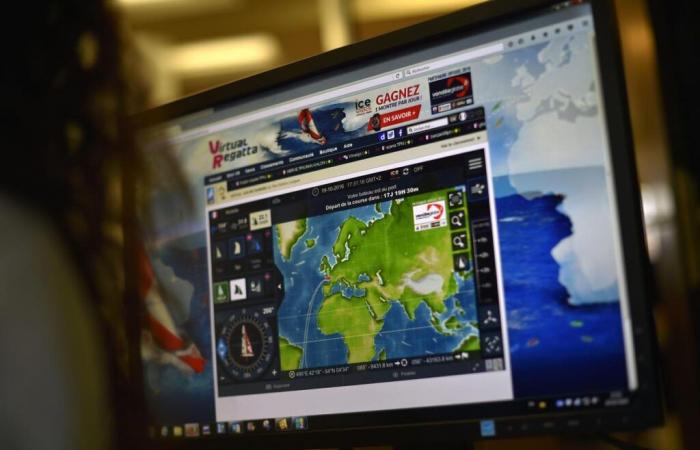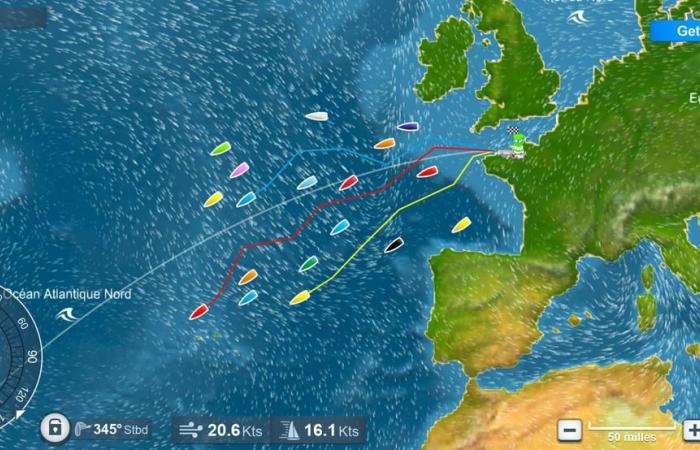It was October 2006 and at the time there were “only” 50,000 players embarking on the crazy Virtual Regatta adventure. Eighteen years later, the famous free offshore racing simulation game, founded by former skipper Philippe Guigné, originally from La Rochelle, has become a world reference in the world of gaming but also for the general public. While the start of the tenth edition of the Vendée Globe will be given this Sunday, November 10, regatta fans are already on the lookout, on their computer or telephone screens. Their goal? Power their own virtual boat to victory in Les Sables-d'Olonne.
Rochelais Philippe Guigné founded the sailing simulation game “Virtual Regatta” in 2006.
Philippe Guigné
A free, simple game accessible to all
Although the game has evolved over the years, the basic idea remains the same as when it was created. “We had to make a free and simple game in which you can manage the progress of your boat, its headings and its sails, while playing with the real weather,” recalls Philippe Guigné. By creating “Virtual Regatta”, the Charentais-Maritime, now based in Paris, also and above all wanted to share his passion for sailing with as many people as possible. It’s a success since the entrepreneur now estimates “that one in two “Virtual Regatta” players does not practice sailing. We have succeeded in popularizing our sport.”
Virtual Regatta
Above all, online sailing has become more democratized and the last edition of the Vendée Globe in 2020 proved it with nearly a million players counted during the event. After long years of work pampering his baby, Philippe Guigné finally ended up selling the business, a year later, in 2021, to the company 52 Entertainment, world leader in online bridge games.
But if “Virtual Regatta” is still as successful today in terms of the number of players – there were already nearly 200,000 registered three days before the start of the Vendée Globe – it is not always a long, quiet river for its administrators.
Technical problems before departure
The world of social networks is sometimes intractable and all it takes is a technical problem to start a fire. This is what happened when registrations were launched at the beginning of October. “We have made around fifteen versions over the past month. We had things to settle. Players were on a slow and buggy platform. It's normal for them to express their dissatisfaction. We did the work, but it’s not easy for us, as it is for them,” argues Thomas Gautier, the company’s deputy general manager.
Managing technical issues and latency is the task of all video game developers. And Philippe Guigné knows this well, which is why he still tries to help the team in place today. “They are my former colleagues, they ask my opinion and I have ideas. There was an update to the game that caused quite a stir, with the marina (1), a modality dedicated to boat customization. It's different from what I created, but we know that as soon as there is change, there are pros and cons. We know that any development will be contested. We'll see how it goes in the Vendée Globe. »
(1) Participants have an immersive interface with a virtual hangar to prepare their boat, ranking interface, interactive showcase for businesses and other scalable features.







